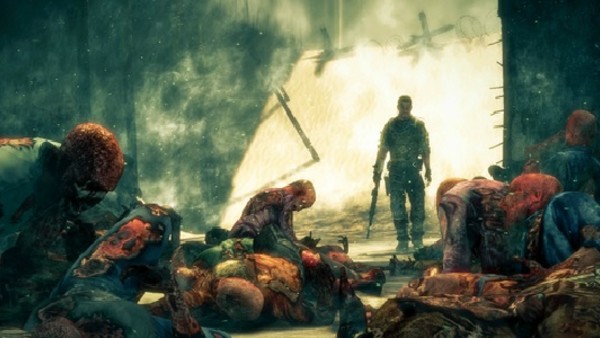No, We Won't Shut Up About Spec Ops: The Line
An Evergreen Narrative

Spec Ops: The Line was especially powerful in part because of when it released. 2007-2012 could widely be considered the era of the modern military shooter. COD4 had seen huge success, both critical and commercial, and its two sequels followed suit (though to a lesser degree). Battlefield's Bad Company titles eagerly capitalised on the format, and 2011's Battlefield 3 is still widely regarded as one of the best games in the franchise. Medal Of Honor also saw a shift to present-day combat, though these games were markedly less well-received. In fact Medal Of Honor: Warfighter, released the same year as Spec Ops: The Line, was poorly received across the board for its shallow gameplay and complete lack of self-awareness in its narrative.
Spec Ops was released when these shooters were at their most popular, and its marketing presented it as another one for the pile, albeit with some interesting environment mechanics and and an unforgiving setting. To pull the rug from unsuspecting players and vociferously condemn not only the genre, but the player themselves and the very nature of warfare itself, was one hell of a bold move, and an impeccably timed one at that. The subgenre saw a decline after 2012, with the various franchises moving either into futuristic warfare or returning to their historical roots. Can we therefore credit Spec Ops: The Line with driving a stake through the heart of that dreadful shooter scene? Probably not, but it's a nice theory.
While Call Of Duty isn't quite the critical phenomenon it was a decade ago, it still rakes in profits for publisher Activision, with a revenue of over $3 billion in 2021. 2019’s Modern Warfare reboot marketed itself on presenting its players with uncomfortable realities tough moral dilemmas. In reality, it actually seemed to double down on its war crime apologia and cowardly historical revisionism. Its multiplayer even included a brand new killstreak reward. That reward? White Phosphorus.
As long as entertainment media continues to whitewash and cheapen the painful legacy of war and state-sponsored violence, the discussions presented in Spec Ops remain relevant. Even though it may not have quite the same impact now that the modern military shooter is no longer top dog, and most players go into it knowing its intentions, Spec Ops is still an exceptional piece of work. Sure, there are games with more elegantly written dialogue and more subtle explorations of the issues they want to present, but that's beside the point. Sometimes we need a game that plants its flag firmly and points its finger directly, holding us down and forcing us to re-examine our relationship to media and confront our worst excesses.
I would like to assure you at this point that I am neither pearl-clutching nor moralising about the perceived evils of violent video games. I enjoy violent games as much as the next gamer, and even like to revisit shooters such as COD4 or Battlefield 3 from time to time for a tense, tightly-constructed campaign. But to consume the media we enjoy without ever viewing it through a critical lens is to deny ourselves and other artists the room to grow and progress. There's a hypocrite in all of us, and to acknowledge that is most definitely a good thing.
These points have doubtless been made many times before over the past 10 years by more talented writers than me, but it felt necessary to reiterate why Spec Ops: The Line is still worth talking about. So no, we won't shut up about it. Expect see many more entries in lists from now until the end of time.